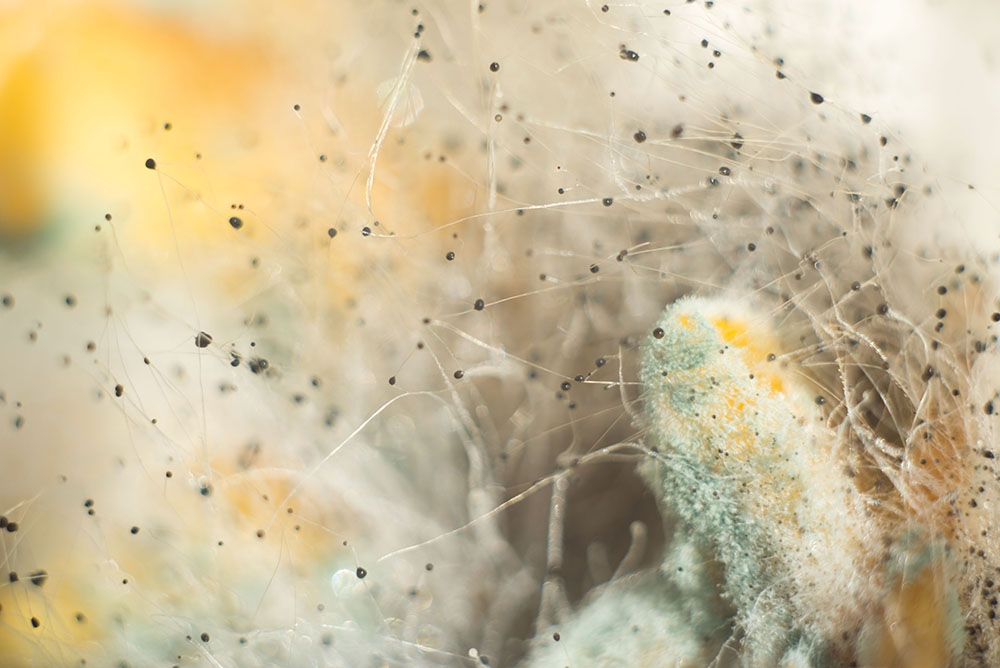How Does Mould Affect Your Mental Health?

CONTENTS
- The science behind mould and mental health
- The impact of indoor air quality on mental health
- Recognising symptoms of mould exposure
- Preventing mould growth for better mental health
- Frequently asked questions
- Get in touch
Although we know the physical effects that mould can have on us, from coughing to allergic reactions, it could have a damaging effect on your psychological health, triggering symptoms of depression and anxiety.
At ICE Cleaning, we work closely with your local council to deliver excellent mould removal services. We utilise advanced technology and industrial-grade solutions to thoroughly remove all traces of mould and its spores, advising you on future prevention.
Read on to learn more about mould and its connection to mental health issues. Understand how indoor air quality influences mental health, learn to recognise symptoms of exposure and explore prevention methods for better living conditions.
The science behind mould and mental health
Studies have begun to uncover the correlations between exposure to mould and mental health. When we breathe in mould spores, our body's immune system responds with inflammation.
Inhaling mould spores can cause physical reactions such as a runny nose or cough but could impact our mental health.
Research suggests that this inflammation might disrupt the chemicals in our brain responsible for mood regulation. These changes could potentially contribute to conditions such as depression or anxiety.
The impact of indoor air quality on mental health
Mould plays a significant role in indoor air quality, affecting our psychological health. Mould releases mycotoxins into the air we breathe; these toxins can disrupt neurotransmitter systems in the brain, leading to emotional distress.
Moreover, dealing with persistent mould infestations may also trigger stress responses. Living or working in such environments could make you feel constantly uneasy, adding further strain on your mental well-being.
It is crucial to keep your surroundings clean and dry as moisture encourages mould growth to protect yourself from this growth.
Recognising symptoms of mould exposure
Being able to spot the signs of mould exposure is crucial. You may experience symptoms like persistent coughing, sneezing and a dripping nose as if you had a cold or hay fever.
Sick Building Syndrome (SBS), often caused by poor indoor air quality from factors like mould, can also lead to headaches and dizziness. More severe reactions include shortness of breath or fever.
Mental health issues are another symptom. Feeling constantly low in mood or anxious could be due to your environment. It is important not to dismiss these feelings but instead seek help if you are struggling.
Watch out for physical signs – discolouration on walls or a musty smell could indicate hidden mould growth. If found early enough, professional cleaning services can help prevent further damage and potential health problems.
Preventing mould growth for better mental health
Keeping mould at bay is crucial to protect your mental health. Humidity and dampness contribute to mould, so track their levels from hygrometers. Ensure your home has good ventilation - an open window or extractor fan can help promote this.
A dehumidifier can reduce the moisture levels in the air that mould thrives on. They help by extracting excess moisture from the air and balancing the humidity levels to ensure a healthy environment is maintained.
It is essential to maintain cleanliness to prevent mould. You must regularly clean surfaces that accumulate moisture, such as bathroom tiles and windowsills, with cleaning solutions for tackling mould.
It is also important to add roof, gutter and downpipe maintenance to your routine, to prevent water leakage that can encourage mould growth.
Beyond these direct impacts, living with persistent mould can make you feel like your home is no longer safe or comfortable - further affecting your mental health.
It is vital to address any signs of mould quickly for both physical and mental well-being, so hire professional cleaners at the first sight of mould.
Frequently asked questions
Can mould make you unwell?
Mould exposure can trigger mental health issues like anxiety and depression, according to research. It is not the mould itself but the body's response that affects your brain.
What are the signs of mould sickness?
Symptoms include headaches, fatigue, skin irritation and respiratory problems. Some also experience memory loss or mood changes due to long-term exposure.
Is it safe to sleep in a room after cleaning mould?
You should let the room air out before sleeping there again. Mould spores might still linger post-cleaning; ventilation helps clear them out.
Get in touch
When you see mould, you must contact our team at ICE Cleaning immediately. Our team conduct thorough mould remediation services where we remove all traces of mould from your property and assist you in ensuring it does not return in the future.
If you have questions about our mould cleaning programme or want a free, no-obligation quote, contact our team today at 0208 066 0360 or enquiries@icecleaning.co.uk. Our team works nationwide, 24/7, 365 days a year to ensure you receive the best service all year around, including bank holidays.

Speak with me today,
I’m here to help
By asking you a few questions either via phone or email I can immediately provide a realistic estimation of the cost.
You’re in good company. We’ve cleaned for the following commercial clients… View all

Why choose us?
- Cater to a wide variety of cleaning situations
- Nationwide coverage, available 24/7
- Cater to commercial and domestic clients
- Free survey provided prior to quotation
- Emergency response team
- Offer a bespoke service designed to suit all your needs
- All technicians hold professional health and safety qualifications, including BICSc, IOSH, Dewpoint Professional & Safe Contractor
We’re fully accredited
We place best practise, professional expertise and health and safety at the core of our business. We’re fully compliant with all legal obligations. You can view a list of our accreditations below, or visit our Health & Safety page for more information.




-RGB-small.1707319151.jpg)



























